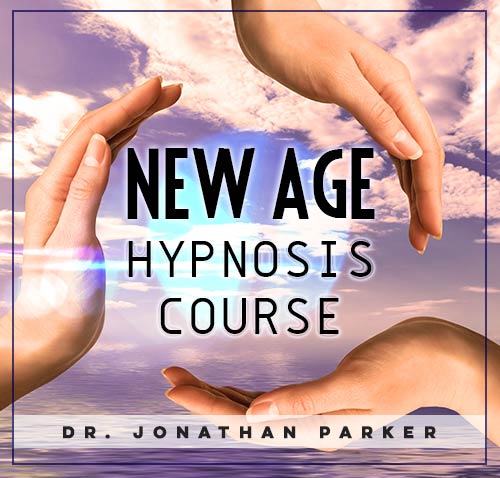Hypnosis for Addiction Recovery

Hey there, amazing readers! 🖐️ Just a quick note: yes, we know there are a lot of ads here. Trust us, we get it—it’s not the prettiest look, but they help us keep this blog alive and kicking. Those pesky little ads cover the costs of all the behind-the-scenes magic, from hosting and tech stuff to creating content we hope you’ll love.
We’re committed to delivering quality posts, and your support (even just sticking around despite the ads) means everything to us. So, bear with us, and thanks for helping us keep the good vibes rolling. Now, on to the fun stuff! 😉
TRANSLATE BUTTON AT THE END OF THE ARTICLE
A Quick Overview
Hypnosis for addiction recovery is a therapeutic approach that has gained popularity in recent years for its potential to help individuals break free from the cycle of substance abuse.
By tapping into the subconscious mind, hypnotherapy aims to address the underlying issues that contribute to addiction and promote positive behavioral changes.
In this article, we will delve into the intricacies of using hypnosis as a tool for addiction recovery, exploring its benefits, effectiveness, types of addiction treated, how it works, and much more.
Understanding Addiction Recovery
Addiction recovery is a complex and challenging process that involves overcoming physical, psychological, and emotional dependencies on substances or behaviors.
It often requires a multi-faceted approach that addresses the root causes of addiction, as well as the individual’s unique needs and circumstances.
Traditional therapies such as counseling, support groups, and medication-assisted treatment are commonly used in addiction recovery programs.
Hypnosis offers a complementary and alternative approach that focuses on harnessing the power of the mind to facilitate lasting change.
Benefits of Hypnosis Therapy
Hypnosis therapy for addiction recovery offers several unique benefits that set it apart from other forms of treatment.
One of the primary advantages of hypnosis is its ability to access the subconscious mind, where deep-seated beliefs, emotions, and behaviors reside.
By working at this level, hypnotherapy can help individuals uncover and address the underlying issues fueling their addiction.
Additionally, hypnosis is a non-invasive and drug-free therapy that can be tailored to suit the individual’s needs, making it a versatile and holistic treatment option.
How Hypnosis Works for Addiction
Hypnosis works by inducing a state of deep relaxation and heightened focus, known as a trance state, where the subconscious mind becomes more receptive to suggestions and changes.
During a hypnosis session, a trained hypnotherapist guides the individual through relaxation techniques and verbal cues to access their subconscious thoughts and beliefs.
By reprogramming negative patterns and reinforcing positive behaviors, hypnosis can help individuals break free from addictive tendencies and develop healthier coping mechanisms.
Types of Addiction Treated
Hypnosis therapy has been used to treat a wide range of addictions, including but not limited to:
Substance abuse (alcohol, drugs)
Gambling addiction
Food addiction
Smoking cessation
Internet and gaming addiction
Sex addiction
Regardless of the type of addiction, hypnosis can be a valuable tool in addressing the underlying factors that contribute to addictive behaviors and promoting recovery.
Tailoring Hypnosis Sessions
One of the key strengths of hypnosis therapy is its ability to be tailored to the individual’s specific needs and goals.
Hypnotherapists work closely with clients to understand their unique triggers, challenges, and motivations, allowing them to customize each session for maximum effectiveness.
Whether focusing on building self-esteem, managing stress, or overcoming cravings, hypnosis sessions can be adapted to address the specific issues that are most relevant to the individual’s recovery journey.
Addressing Underlying Issues
Addiction is often a symptom of deeper emotional pain, trauma, or unresolved issues that need to be addressed for lasting recovery to occur.
Hypnosis therapy delves into these underlying issues by exploring the subconscious mind and uncovering the root causes of addictive behaviors.
By identifying and working through these issues in a safe and supportive environment, individuals can gain a deeper understanding of themselves and develop healthier coping strategies to prevent relapse.
Combining Hypnosis with Other Therapies
Hypnosis therapy can be a powerful adjunct to other addiction treatment modalities, such as cognitive-behavioral therapy, group counseling, and medication management.
By integrating hypnosis with traditional therapies, individuals can benefit from a comprehensive and holistic approach to recovery that addresses both the psychological and physiological aspects of addiction.
This combination of therapies can enhance the effectiveness of treatment and support long-term sobriety.
Success Rates of Hypnosis
While individual results may vary, hypnosis therapy has shown promising results in helping individuals overcome addiction and maintain sobriety.
Research studies have demonstrated the effectiveness of hypnosis in reducing cravings, managing withdrawal symptoms, and improving overall well-being in individuals recovering from addiction.
Success rates can be further enhanced by ongoing support, lifestyle changes, and a commitment to the recovery process.
Finding a Qualified Hypnotherapist
When seeking hypnosis therapy for addiction recovery, it is essential to find a qualified and experienced hypnotherapist who specializes in treating addictive behaviors.
Look for a therapist who is certified by a reputable hypnotherapy organization, has experience working with addiction, and offers a personalized approach to treatment.
Additionally, ask for referrals from trusted sources, read reviews, and schedule a consultation to ensure a good fit with the hypnotherapist before beginning treatment.
Potential Side Effects and Risks
While hypnosis therapy is generally safe and well-tolerated, some individuals may experience side effects such as dizziness, headaches, or emotional distress during or after a session.
It is important to communicate any discomfort or concerns with the hypnotherapist to ensure a positive and supportive experience.
Additionally, hypnosis should not replace medical or psychiatric treatment for addiction, but rather be used as a complementary therapy in conjunction with other evidence-based treatments.
Maintaining Sobriety Post-Hypnosis
After completing a course of hypnosis therapy for addiction recovery, it is crucial for individuals to continue their commitment to sobriety by implementing healthy lifestyle choices, ongoing therapy, and support networks.
Developing coping skills, setting realistic goals, and practicing self-care are essential components of maintaining long-term recovery post-hypnosis.
By staying connected to a supportive community and seeking help when needed, individuals can build a strong foundation for a sober and fulfilling life.
Research and Studies on Hypnosis
Numerous research studies have explored the efficacy of hypnosis therapy for addiction recovery, with many showing positive outcomes in reducing cravings, improving treatment retention, and enhancing overall well-being.
While more research is needed to fully understand the mechanisms of hypnosis in addiction treatment, the existing evidence suggests that hypnosis can be a valuable tool in supporting individuals on their journey to recovery.
By incorporating hypnosis into comprehensive treatment plans, individuals can benefit from a holistic approach that addresses the complexities of addiction from a mind-body perspective.
Conclusion
In conclusion, hypnosis therapy offers a unique and effective approach to addiction recovery by tapping into the subconscious mind, addressing underlying issues, and promoting positive behavioral changes.
By tailoring hypnosis sessions to the individual’s needs, addressing deep-seated emotional issues, and combining hypnosis with other therapies, individuals can enhance their chances of successful recovery.
While hypnosis is not a standalone treatment for addiction, it can be a valuable tool in a comprehensive recovery plan.
By working with a qualified hypnotherapist, maintaining sobriety post-hypnosis, and seeking ongoing support, individuals can unlock the secrets to lasting recovery and a healthier, happier life.

The Enlightenment Journey is a remarkable collection of writings authored by a distinguished group of experts in the fields of spirituality, new age, and esoteric knowledge.
This anthology features a diverse assembly of well-experienced authors who bring their profound insights and credible perspectives to the forefront.
Each contributor possesses a wealth of knowledge and wisdom, making them authorities in their respective domains.
Together, they offer readers a transformative journey into the realms of spiritual growth, self-discovery, and esoteric enlightenment.
The Enlightenment Journey is a testament to the collective expertise of these luminaries, providing readers with a rich tapestry of ideas and information to illuminate their spiritual path.
Our Diverse Expertise 🌟
While our primary focus is on spirituality and esotericism, we are equally passionate about exploring a wide range of other topics and niches 🌍📚. Our experienced team is dedicated to delivering high-quality, informative content across various subjects ✨.
To ensure we provide the most accurate and valuable insights, we collaborate with trusted experts in their respective domains 🧑🏫👩🏫. This allows us to offer well-rounded perspectives and knowledge to our readers.
Our blog originally focused on spirituality and metaphysics, but we’ve since expanded to cover a wide range of niches. Don’t worry—we continue to publish a lot of articles on spirituality! Frequently visit our blog to explore our diverse content and stay tuned for more insightful reads.







